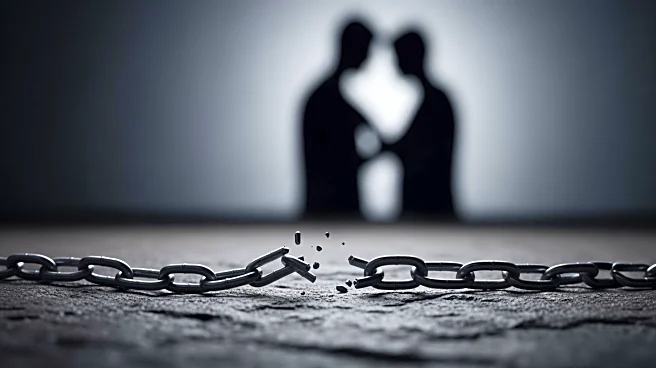What's Happening?
Hamas has returned the bodies of two hostages to Israel, identified as Ronan Engel and Thai national Sonthaya Oakkharasri. This development comes amid a fragile ceasefire in Gaza, which has been under
strain due to delays in the return of hostage bodies and ongoing Israeli strikes. The ceasefire, which began last week, was intended to pause the conflict and facilitate humanitarian aid into Gaza. However, tensions remain high as protests in Israel demand the return of all hostages. The U.S. State Department has warned of potential ceasefire violations by Hamas, while Hamas accuses Israel of breaching the agreement.
Why It's Important?
The return of the hostages' bodies is a critical aspect of the ceasefire agreement between Israel and Hamas. The situation highlights the ongoing humanitarian and political challenges in the region. The delay in returning all hostages has sparked public outcry in Israel, putting pressure on the government to act. The U.S. involvement underscores the international dimension of the conflict, with potential implications for U.S. foreign policy and regional stability. The situation affects not only the immediate parties but also international relations and humanitarian efforts in the region.
What's Next?
The ceasefire's future remains uncertain as both sides accuse each other of violations. The Rafah crossing, a key entry point for aid into Gaza, remains closed, contingent on further hostage returns. Israeli Prime Minister Benjamin Netanyahu has stated that the conflict will end only when all hostages are returned and Hamas is disarmed. The international community, including the U.S., is likely to continue diplomatic efforts to maintain the ceasefire and address humanitarian needs. The situation remains fluid, with potential for further escalation if agreements are not upheld.
Beyond the Headlines
The hostage situation and ceasefire highlight deeper issues in the Israeli-Palestinian conflict, including the use of hostages as leverage and the humanitarian impact on civilians. The ongoing conflict raises ethical questions about the treatment of hostages and the responsibilities of both parties under international law. The situation also reflects broader geopolitical dynamics, with implications for regional alliances and the role of international mediators in conflict resolution.










